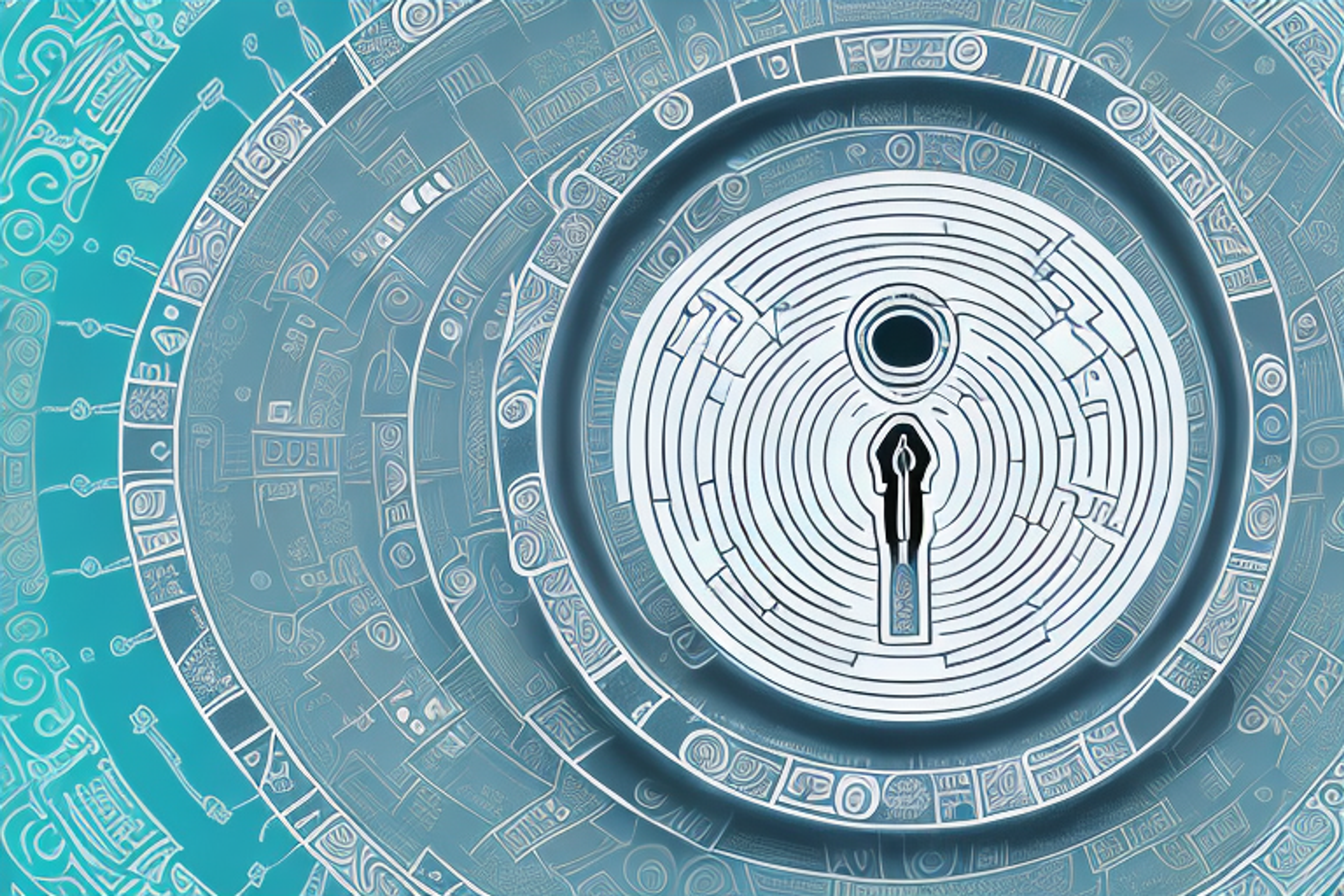BCG Pymetrics Test: The Ultimate Guide (2024)
In the fast-paced world of consulting recruitment, BCG Pymetrics has emerged as a groundbreaking tool that revolutionizes the hiring process. If you're eager to understand and master this pymetrics test, our comprehensive guide is your ultimate resource!
Posted November 7, 2024

Free Event

Featuring Mattijs B.
Crack the MBB Consulting Case
Starting Tuesday, November 19
5:30 PM UTC · 30 minutes

Featuring Mattijs B.
Table of Contents
BCG pymetrics is a revolutionary tool that aims to enhance the recruitment process by using neuroscience and AI-based games and exercises to assess candidates’ emotional and cognitive traits. In this article, we will delve into the essential steps to mastering the BCG pymetrics test and increasing your chances of success during this important step of the consulting application process.
What is BCG?
The Boston Consulting Group (BCG) is a global management consulting firm. Founded in 1963, BCG is known for its expertise in business strategy and its analytical approach to solving complex business problems. The firm works with a wide range of industries, helping organizations improve performance, develop growth strategies, and navigate challenges.
BCG is particularly famous for developing the "BCG Matrix," a strategic tool used to analyze a company's product portfolio based on market growth and market share. The firm operates in various sectors, including consumer goods, technology, healthcare, and finance, and is recognized for its focus on innovative solutions and thought leadership in management practices.
What Does BCG Do?
BCG specializes in helping businesses address complex challenges and seize transformative opportunities through a variety of consulting services. Some of the main areas BCG focuses on include:
- Corporate Strategy – BCG works with companies to define long-term strategies that drive growth and competitive advantage. This includes everything from market entry and expansion strategies to digital transformation and innovation planning.
- Digital Transformation and Technology Consulting – With the rise of digital technologies, BCG assists businesses in adapting to new tech landscapes. The firm helps companies implement digital tools, automate processes, and adopt data-driven strategies to improve efficiency and customer experience.
- Operational Efficiency – BCG is known for helping organizations streamline operations, reduce costs, and improve productivity. This includes optimizing supply chains, implementing lean methodologies, and improving workforce management.
- Sustainability and Social Impact – As sustainability has become a critical business focus, BCG offers consulting that helps organizations incorporate environmentally and socially responsible practices. They work with clients to reduce carbon footprints, improve sustainability in production, and create policies that promote social impact.
- Mergers & Acquisitions (M&A) – BCG guides companies through complex M&A transactions, including due diligence, integration, and valuation. They support clients in identifying potential acquisition targets, structuring deals, and navigating post-merger integration.
- People and Organization – BCG helps businesses improve organizational design, enhance corporate culture, and optimize talent management practices. This includes leadership development, employee engagement strategies, and workforce planning.
With over 90 offices worldwide, BCG’s global reach and industry expertise enable them to tackle diverse challenges and deliver measurable results for their clients. Whether it’s increasing profitability, improving sustainability, or driving innovation, BCG tailors its approach to meet the unique needs of each client.
Read: A Comprehensive Guide to MBB: McKinsey & Co., Boston Consulting Group, and Bain & Co.
What Exactly is the BCG Pymetrics Test?
Founded by Dr. Frida Polli and Dr. Julie Yoo in 2013, the BCG pymetrics test aims to move away from traditional resume-based assessments. Specifically, the platform uses a series of exercises and games designed to measure over 70 skills and traits such as attention, memory, decision-making, problem-solving, emotional intelligence, and many more. The assessment consists of 12 mini-games, each taking approximately 2-3 minutes to complete.
Why Does BCG Use Pymetrics?
The firm uses the pymetrics test with the goal of “learning more about you, above and beyond what’s on your resume and application form. It provides unbiased, multi-dimensional insight into your potential for success…” (Boston Consulting Group). Pymetrics’ scientific foundation and game-based assessments provide BCG with objective data about a candidate’s cognitive and emotional traits, helping them identify individuals who align with their specific job requirements and company culture. The online assessment is trying to weed out – to the best of its ability – those who will actually make successful BCG consultants. Ultimately, the use of the pymetrics test allows BCG to make more informed and fair hiring decisions, ultimately leading to a more diverse and talented workforce.
The BCG pymetrics test is part of a larger trend toward automated hiring screenings, particularly in consulting. Other top consulting firms, including McKinsey, have instituted similar processes. Read our guide to the McKinsey Solve Game here.
Are You Required to Take the BCG Pymetrics Test?
The BCG pymetrics test is a requirement for anyone applying to work at the firm, especially in the United States. Every applicant, whether undergrad, MBA candidate, or someone with industry experience, is expected to complete the pymetrics test as part of the hiring process.
The results of your BCG pymetrics test are important, but are still only one of the factors of your application that will determine whether or not you’re hired. Your resume, cover letter, and behavioral/case interviews are still just as important. However, you should prepare for the pymetrics games as thoroughly as you would for the broader BCG interview process.
Expert Tip: Research what BCG is looking for in a top candidate before you begin your pymetrics test. Know what the pymetrics test is really assessing and develop game strategies that fit those parameters.
How Are Pymetrics Test Results Evaluated?
Knowing how BCG produces the results of your pymetrics test can help you better prepare for the assessment. The pymetrics test evaluates cognitive traits across 9 main categories, which are covered in the 12 mini-games you will play. These categories include:
- Attention
- Decision making
- Effort
- Emotion
- Fairness
- Focus
- Generosity
- Learning
- Risk tolerance
These games are crafted to measure how candidates approach tasks, make decisions, and interact in scenarios that mirror real-world challenges. For instance, the Balloon Game assesses risk tolerance by having candidates decide how much to inflate a balloon without it popping, while the Tower Game evaluates decision-making and planning skills through tasks like rearranging disks to match a target configuration.
After completion, the test results are analyzed using algorithms that compare a candidate's performance to profiles of successful BCG consultants. This comparison helps determine the candidate's fit for the role. It's important to note that there are no right or wrong answers; the focus is on understanding natural behaviors and cognitive patterns.
In the next section, we’ll go over the entire process for completing the pymetrics test.
The BCG Pymetrics Test: What to Expect From Start to Finish
The process for receiving and completing the pymetrics test is fairly simple. As long as you are prepared for the assessment prior to completing it, you have nothing to worry about. But we’ll break down the exact process you can expect from start to finish so that there are no surprises.
1. Recieve a Pymetrics Test Invitation
You will first receive an invitation to take the pymetrics test after you submit your resume but prior to your first interview. This will come in the form of an email from your potential employer, which will include a link to sign up on the website.
2. Sign up for the Pymetrics Test
Once you receive your email invitation and click on the provided link, you will need to create an account on the website and log in before you can complete your pymetrics test.
3. Play the Mini Games
When you’re ready to take the BCG pymetrics test, read the instructions and then enter your first game. There are 12 mini-games to complete in all, and you will be able to pause between games, but not in the middle of a game.
How long does the pymetrics test take?
Each of the 12 mini-games lasts about 2-3 minutes, so the entire pymetrics test should take you between 20 and 30 minutes total. It is relatively short, which makes it that much more important to prepare ahead of time!
4. Wait For Your Pymetrics Test Results
Once you have successfully completed the pymetrics games, your results will be sent to the employer for review. If you’re a good match, you will be contacted for the rest of the interview process.
The 12 Pymetrics Mini Games
Achieving strong pymetrics test results goes beyond simply excelling at the games. In other words, it’s not about getting to the solution, but about how you reach the solution. Take a look at the complete list of the 12 mini-games below, paying particular attention to the key skills being tested; although the exact scoring method is based on an algorithm that is not publicly disclosed, being able to effectively showcase these skills is what will get you a high score.

1. Balloons Game
- Description: In the Balloon game, your objective is to pump balloons to earn money. Each pump contributes to your earnings, and you have the flexibility to stop and collect your accumulated money whenever you decide. However, be cautious not to pump too much, as the balloon has a limit, and if you exceed it, the balloon will burst, resulting in the loss of all the money you earned for that particular balloon.
- Strategy: The challenge lies in the variety of colors the balloons come in, each displaying distinct behavior. As you play the Balloons game, the key is to analyze and understand the behavior of each color, quickly recognizing the pattern that leads to their explosion. During the game, it's crucial to closely observe the colors and make informed predictions about when each balloon is likely to explode. Each explosion presents an opportunity to gain insights into the patterns, enabling you to make more informed decisions with the next balloon. Embrace the learning process and use your observations to continually improve your strategy as you progress through the game.
- Key Skills Being Tested:
- Pattern recognition
- Decision making
- Risk tolerance
- Learning
2. Towers Game
- Description: The pymetrics towers game is a variation of the popular Hanoi Towers game. In this version, you'll encounter three towers, each holding differently colored disks stacked upon one another. Your objective is to rearrange the disks to match the given example configuration of the target tower using the fewest moves possible.
- Strategy: The towers game records two essential factors – the total number of moves you make and the initial time it takes for you to execute the first move. Demonstrating the ability to wait a bit longer before making the first move highlights your capacity to plan ahead and develop a thoughtful strategy, which is a valuable trait to showcase during the assessment.
- Key Skills Being Tested:
- Planning
- Logical reasoning
- Attention and focus
3. Money Exchange 1
- Description: In the first pymetrics Money Exchange game, you are randomly paired with another “participant.” The game commences with you earning $10. You will then be given the choice to transfer any amount you desire to your fellow participant, which will be tripled upon transfer. Subsequently, your partner can decide on the amount of money that they want to give back to you. Finally, you will be asked to rate how fair you believe your partner was in this transaction.
- Strategy: BCG recognizes that there is a correlation between trust and cooperation; individuals who demonstrate trust in others are more inclined to engage in group tasks, highlighting their potential as strong team players to employers. But you also need to maximize returns and generate as much money as possible. Balancing these two priorities is difficult but important in the world of consulting.
- Key Skills Being Tested:
- Fairness
- Trust
- Risk tolerance
- Cooperation
4. Money Exchange 2
- Description: The second pymetrics Money Exchange game appears similar to the first one but has distinct differences:
- Both you and your “paired partner” begin with $5, but only one of you receives an additional $5.
- You have the chance to transfer some of your extra earned money to your partner and rate the fairness of that money exchange transaction.
- In contrast to the first game, there is a second round where only you receive an extra $5. During this round, you must decide whether to transfer any of it to your partner or keep it for yourself.
- Strategy: The second Money Exchange game grants you full control over the outcome for both you and your partner. Therefore, your decisions will directly influence the final amounts exchanged. As you evaluate the fairness of the transaction, it becomes crucial to remain consistent and confident in the choices you make, sticking to a similar decision you made in the first Money Exchange game.
- Key Skills Being Tested:
- Critical thinking
- Altruism
- Risk tolerance
5. Keypresses Game
- Description: The Keypress game is quite straightforward – almost deceptively so! In this game, you're prompted to press a specific key on your keyboard as rapidly as possible within a given time frame. The game alternates between 'Start' and 'Stop' commands, requiring you to initiate and cease keypresses accordingly.
- Strategy: Follow the instructions, that’s all! The key is to initiate pressing the key when specifically prompted to and cease precisely when instructed to do so.
- Key Skills Being Tested:
- Attention and focus
- Processing speed
- Impulse control
- Ability to follow instructions
6. Digits Game
- Description: In the digits memory game, your objective is to memorize a series of digits that quickly flash on the screen. After the flashing stops, you must accurately recall and type the digits in the correct sequence. With each round, the number of digits increases by one, posing a greater challenge as you advance through the game.
- Strategy: As the digits appear on your screen, make an effort to read them aloud. Your memory tends to perform better when you actively engage rather than passively observe. Embrace an active approach to enhance your memory retention during the task; avoid simply sitting there and watching the numbers fly by. The digits game is all about attention. Other strategies you can try include “chunking”, or breaking longer sequences into smaller groups (e.g., remembering "3-5-8" instead of "3, 5, 8") to make recall more manageable. Also try to create a mental image of the number pattern to strengthen memory retention.
- Key Skills Being Tested:
- Memory
- Attention and focus
7. Cards Game
- Description: In the cards game, you're presented with four decks of cards. Each time you draw a card, you either gain or lose money. The objective is to maximize your total earnings by the end of the game by getting the highest amount of money possible. While the outcomes may initially appear random, each deck follows a specific pattern of rewards and penalties.
- Strategy: When drawing a card in the BCG pymetrics cards game, outcomes can result in either winning or losing money. While it may initially seem random, as you advance, you should begin discerning the underlying patterns to maximize your earnings. Pay close attention to these patterns and act thoughtfully. Develop a strategy for determining which deck to draw from, and refrain from making random choices. By doing so, you can increase your chances of accumulating a larger amount of money throughout the game. Evaluate the potential gains against possible losses for each deck. Some decks may offer higher rewards but come with greater risks. Align your choices with your comfort level regarding risk tolerance and be prepared to adjust your strategy as you learn more about each deck’s behavior.
- Key Skills Being Tested:
- Risk tolerance
- Learning
- Pattern recognition
- Decision-making
8. Arrows Game
- Description: In the arrows game, you're presented with sequences of five arrows flashing briefly on the screen. Your task is to determine the direction based on specific rules:
- Blue or black arrows – Identify the direction of the middle arrow
- Red arrows – Identify the direction of the side arrows
The game consists of 135 rounds over approximately 3 minutes, requiring sustained concentration and quick decision-making.
- Strategy: As this game is composed of 135 rounds and spans over a duration of 3 minutes, it's essential to stay attentive throughout to ensure consistent performance. Also, minimize your eye movement as much as possible. Keep your gaze centered to quickly assess the middle and side arrows without unnecessary shifts.
- Key Skills Being Tested:
- Attention and focus
- Learning
- Pattern recognition
9. Lengths Game
- Description: In this lengths game, you're presented with a series of faces, each displaying either a short or long mouth. Your task is to quickly and accurately identify the length of the mouth and respond accordingly. The challenge lies in the subtle difference between the short and long mouths, making them much trickier to distinguish.
- Strategy: The lengths game is one of the hardest tasks in the pymetrics games set. Here are some strategies you can employ:
- Develop a reference point. At the start, consciously note the length of the mouths labeled as 'short' and 'long' to create a mental benchmark.
- Focus on any distinctive features: Pay attention to other facial features that might correlate with mouth length, such as the distance between the mouth and nose, to aid in differentiation.
- Make sure to maintain consistent concentration. Given the subtle differences, sustained focus is crucial. Avoid distractions and keep your attention centered on the task.
- Be ready to adapt your approach. If you notice a pattern in your errors, adjust your strategy accordingly. For instance, if you're consistently misidentifying long mouths as short, recalibrate your mental reference
Also note that although you may earn money for correct answers in certain instances, it is important to note that this doesn't happen every time. Consequently, learning from your earnings is only a probability and not a consistent rule.
- Key Skills Being Tested:
- Pattern recognition
- Attention and focus
- Adaptability
- Decision-making
10. Easy Task Game
- Description: In the easy task game, you will encounter two options: a relatively easy task with a higher likelihood of completion or a more challenging task that is harder to accomplish. The easy task involves pressing the spacebar 5 times within 3 seconds to earn $1.00, while the hard task requires pressing it 50 times within 12 seconds, with potential earnings between $1.24 and $4.30. The task is done when the number of taps required is reached. However, the likelihood of you receiving an award varies from 10% to 90%, adding an element of uncertainty. The game repeats over a 2-minute period, with the goal being to accumulate as much money as possible within that timeframe.
- Strategy: The challenge lies in the varying probabilities of earning money in each round. Consequently, you might put significant effort into a difficult task, yet end up with no earnings. If the winning probability is low and the reward for the hard task is also minimal, it makes more sense to opt for the easy task. You may feel tempted to go for the harder option to show that you don’t shy away from a challenge; however, the strategic decision demonstrates your ability to think critically and allocate your efforts wisely. Also remember that the hard task consumes more time per attempt. If you're aiming to maximize earnings within the overall time limit, factor in the time investment for each task.
- Key Skills Being Tested:
- Critical thinking
- Project management
- Decision-making
11. Stop Game
- Description: Similar to the Keypresses game, this game has one rule: press the spacebar only when the red shape comes up on the screen. You’ll be presented with shapes in both red and green, but you only want to press a key when the red shape appears and refrain from pressing when the green shape appears. The shapes are displayed rapidly, requiring quick and accurate responses.
- Strategy: Follow the instructions, and keep focused – don’t get distracted! Aim for quick reactions to red shapes while minimizing errors, as both speed and precision are important here.
- Key Skills Being Tested:
- Attention to detail
- Focus
- Impulse control
12. Facial Expressions
- Description: Throughout the facial expressions game, you will be presented with pictures of faces displaying various expressions, some accompanied by brief situational descriptions. Your task is to discern the emotions experienced by the individuals in the pictures and match the most accurate description with the face.
- Strategy: This game stands apart from the others as it focuses on your emotional capabilities rather than cognitive skills. For this one, watch facial cues. Pay close attention to key facial features such as the eyes, mouth, and eyebrows, as these often convey significant emotional information. Also, trust your instincts. Rely on your natural ability to recognize emotions, but remain mindful of cultural differences that might influence facial expressions.
- Key Skills Being Tested:
- Emotional intelligence
- Empathy
- Attention to detail
- Awareness
Strategies to Prepare for the BCG Pymetrics Test
There is actually a lot you can do to get ready for the pymetrics test, especially because you’ll have advanced notice before you play the above mini-games. With enough practice, you should have no problem producing the best possible results.
Familiarize yourself with the different games
Reading this guide and understanding the different games’ structures – as well as the skills and abilities that each is evaluating – is the best first step you can take. This will minimize the time that you need to read the instructions and allow you to dive into performing well.
Practice regularly
Although the Pymetrics platform is proprietary, you can practice cognitive and behavioral games with similar mechanics available online to improve your reaction time, focus, and accuracy. For instance:
- Digit Memory games for improving memory retention
- Stop-and-Go games for enhancing impulse control
- Pattern recognition games to boost cognitive adaptability
Consistently practicing similar tasks will help you approach the test confidently, ready for the challenges each game presents.
Analyze your performance
After completing practice assessments, review your results and identify areas of improvement. Focus on understanding patterns and tendencies in your responses to align with your authentic traits. For example, if you find yourself pressing when you shouldn’t in games like the Stop Game, slow down and practice restraint in the impulse control games. For games like the Cards Game, analyze your risk tolerance and how you make decisions based on outcomes. Track which patterns or strategies maximize gains and consider your comfort level with risk. If you find you have a lower risk tolerance, try gradually incorporating them into your practice to build confidence.
Develop Consistency.
The BCG pymetrics test places high value on consistency, as it’s designed to reveal your authentic behavioral traits. Avoid second-guessing or trying to game the test. Approach each game with a clear mindset, aiming for responses that feel natural and aligned with your instincts.
Practice good time management
Each game has a strict time limit, so being able to make quick, effective decisions is crucial. The two things to think about here are 1) work on your speed and accuracy by setting up self-timed practice sessions and 2) avoid overthinking by setting an internal rule: go with your first reaction if unsure. This will save you valuable time and yield authentic responses.
Strengthen your cognitive flexibility for rapidly switching
Several of the pymetrics games, like the Arrows Game, require rapid cognitive flexibility. Prepare by practicing tasks that force you to switch rules or actions quickly. This will help improve your adaptability, a skill highly valued in consulting roles where quick thinking is essential.
Optimize your environment and mindset before the test
Your environment and mindset on test day can significantly impact your performance. A few ways to set yourself up for success:
- Get enough sleep so you are rested and energized. Ensure a good night’s sleep, have a balanced meal, and hydrate well.
- Minimize all distractions. Choose a quiet, uninterrupted setting with no digital distractions. Make sure the wifi is strong beforehand.
- Be positive! Remind yourself that the test is designed to highlight your natural strengths. Go in confidently, aiming to enjoy the experience rather than approach it with stress.
Mentally reset after each game
Since some games require intense concentration and quick reactions, maintaining calmness is key. Use deep breathing before starting each game to reduce tension and sharpen focus. Try to mentally reset after each game to clear your mind and prepare for the next challenge. Each game is a fresh start and what is done, is done.
Bonus: Can Brain Training Apps Help You Pass the Pymetrics Test?
Practicing for the BCG pymetrics test with brain training apps isn’t necessarily a surefire way to get good results. Pymetrics is a set of specific games that these apps won’t be able to replicate exactly. However, that doesn’t mean they can’t be useful leading up to your pymetrics test.
These apps may be able to help improve your attention, memory, focus, and more – all in the context of a game-like environment. Pymetrics games all depend on refining these traits, so this could be one way to get yourself in the right mindset for the actual pymetrics test.
Land a BCG Offer With the Help of an Expert
Leland has countless coaches who have gone through the BCG recruiting process themselves and understand the pymetrics test like the back of their hands. Check out some of our top coaches below, and sign up today to receive personalized strategies, practice tests, industry insights, and so much more!
[coaching widget]
Looking to break into BCG and other top consulting firms? Check out these expert resources dedicated to helping you nail the consulting recruitment process:
- A Comprehensive Guide to McKinsey & Co., Boston Consulting Group, and Bain & Co.
- BCG Recruiting Timeline for 2023: What Candidates Should Know
- How to Network for Management Consulting
- What is the McKinsey Game and How to Solve It (2023)
- How to Navigate the BCG Application Portal for Maximum Success
FAQ: Common Pymetrics Test Questions and Answers
Are the pymetrics games really tests?
- No. The methodology involves a series of pymetrics games, or exercises. Unlike tests, there are no inherently right or wrong responses. And, most who play find them to be pretty fun!
Is the BCG pymetrics test hard?
- The 12 mini-games that make up the pymetrics test are simple on the surface, but they do require a sharp mind to complete. If possible, take the test with a clear mind and be prepared to really use your brain.
I messed up, can I replay the game?
- You may not replay the games, however, don’t worry! This is not a standardized test, nor is it an IQ test - there is no right or wrong way to play the games.
I’ve played these pymetrics games already for a different recruiting process. What should I do?
- If you already have a pymetrics account, you should follow the steps in your invitation email, logging in via the link provided. Please log in with your existing account details, and you will then be able to submit your existing pymetrics results for your BCG registration. If you apply to BCG with a different email address than the one associated with your existing pymetrics account, please reach out to support@pymetrics.com to merge your accounts.
How will my pymetrics test results be used?
- The pymetrics games are just one of several components of our overall candidate evaluation process, and your results will always be considered alongside all other elements of your application. The pymetrics results are never used as a “filter” to eliminate candidates from consideration; rather, BCG views pymetrics as an inclusion tool. The games help us identify candidates with a range of backgrounds, education and work experiences who share the behavioral and cognitive traits of successful BCGers.
By using pymetrics, won't BCG end up hiring people who share the same behavioral profile?
- BCG has answered the following: “No. In fact, pymetrics will help us avoid this. At BCG, we highly value diversity — of gender, race, ethnicity — as well as diversity of experience and thought. It's fundamental to how we bring unique perspectives to clients, and help our people grow and grow together. There are many different traits that contribute to being a successful BCGer, and not every candidate who is considered a strong fit with BCG will have the same traits or combination of traits in their pymetrics profile. Using pymetrics helps ensure that we identify a range of candidates who will help us unlock the true power of diversity in our work and culture.
Can my gender or race/ethnicity impact my BCG pymetrics test results?
- No. All pymetrics models are thoroughly vetted to ensure that their use in the recruiting process will not bias results for any gender, race, or ethnicity.

















